How to Scrape Hotel Room Availability and Prices Data from MakeMyTrip?
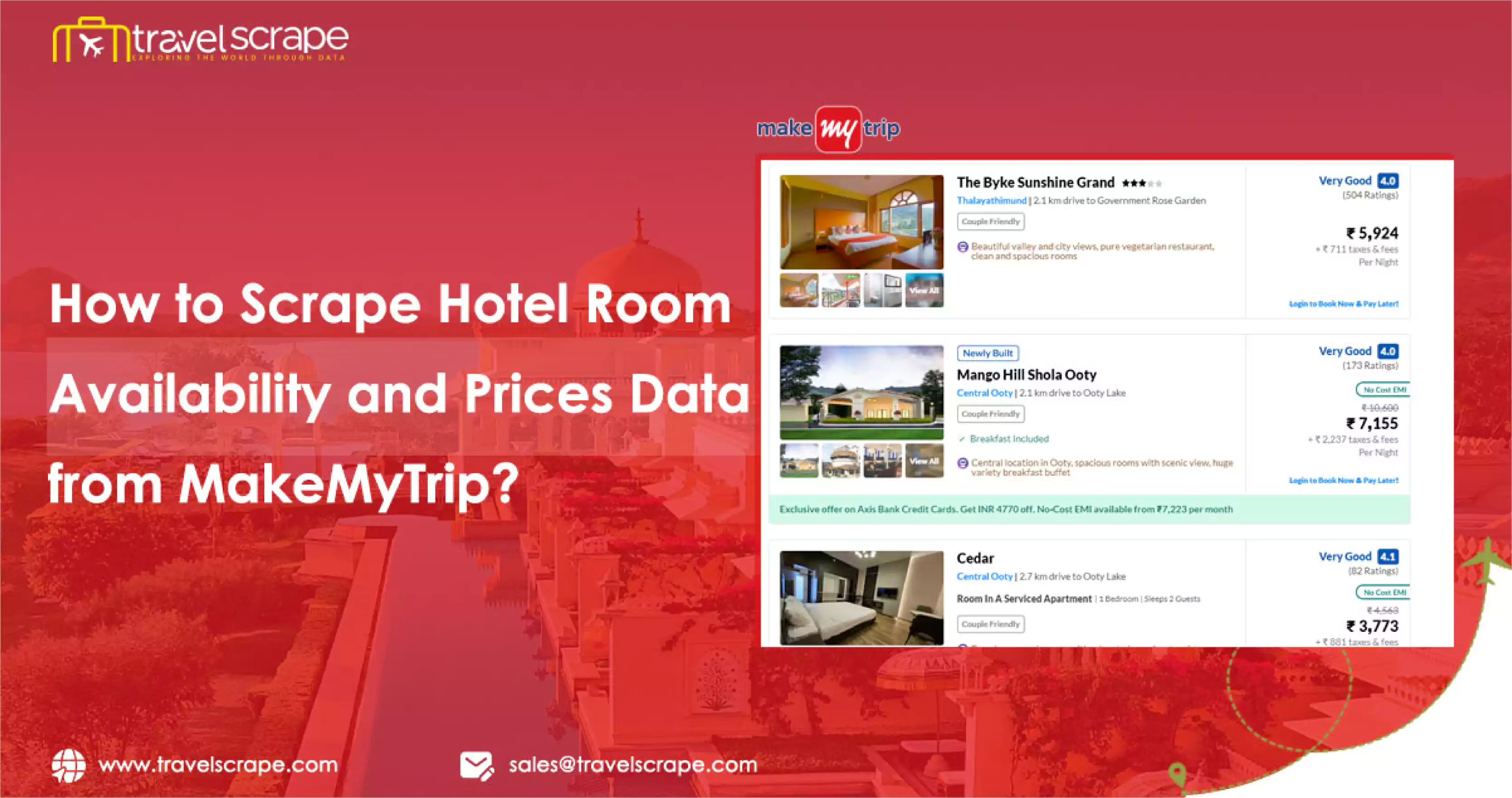
Introduction
In the competitive landscape of travel and hospitality, having access to accurate and timely data is crucial for businesses to stay ahead. One valuable resource for such data is MakeMyTrip, a leading online travel agency in India. Scraping hotel room availability and price data from MakeMyTrip can provide insights into market trends, pricing strategies, and customer preferences. This comprehensive guide will walk you through the process to scrape hotel room availability from MakeMyTrip, leveraging web scraping tools and techniques to scrape hotel price data and extract hotel booking data for your business.
Understanding the Importance of Hotel Data Scraping
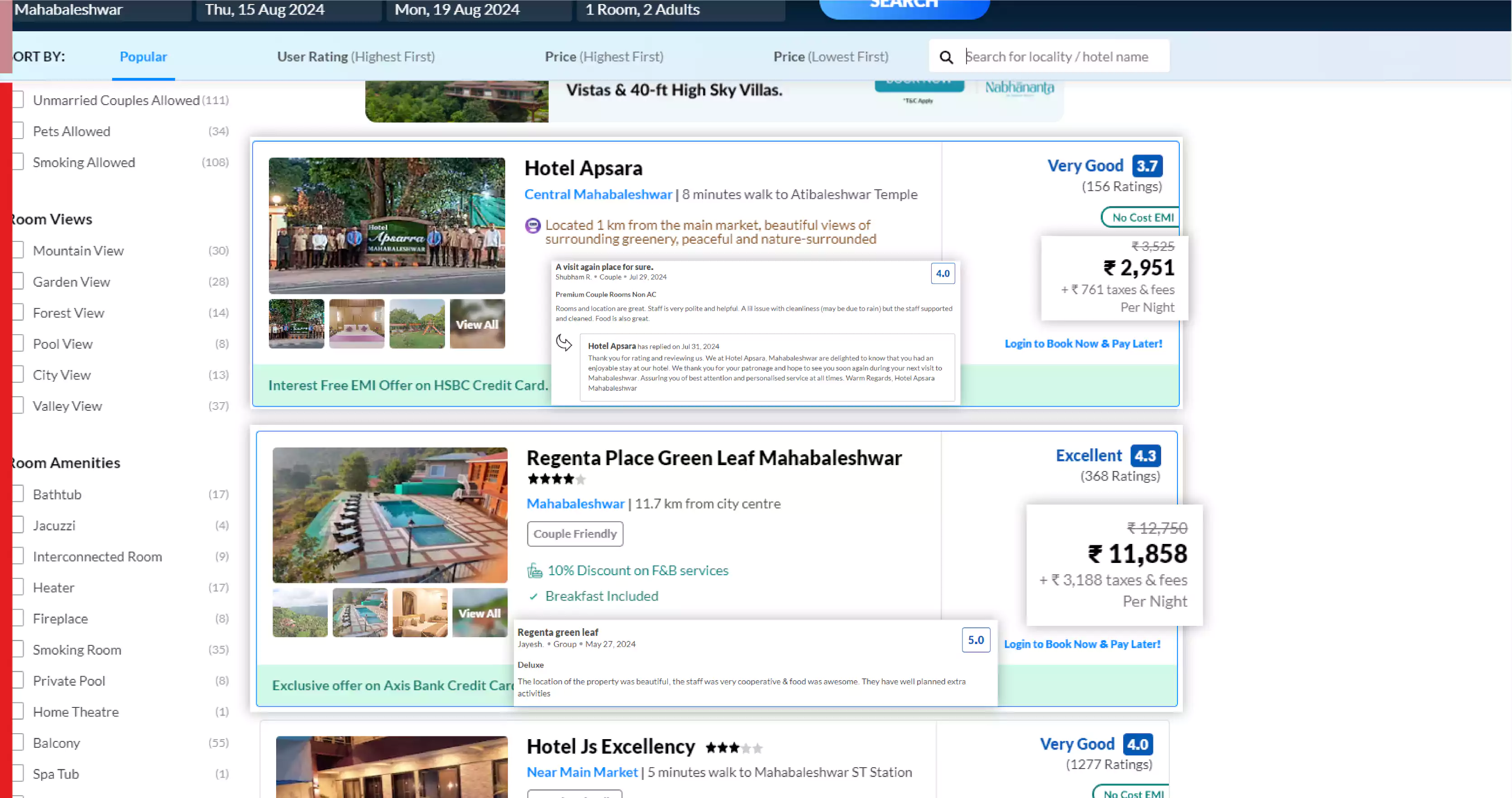
Web scraping travel data from platforms like MakeMyTrip enables businesses to:
• Monitor Competitor Pricing: Keep track of how competitors price their rooms and adjust your rates accordingly.
• Identify Market Trends: Spot emerging trends in hotel bookings and customer preferences.
• Optimize Pricing Strategies: Use historical data to forecast demand and set competitive prices.
• Enhance Customer Experience: Understand customer preferences and tailor your offerings to meet their needs.
Tools and Technologies for Scraping MakeMyTrip
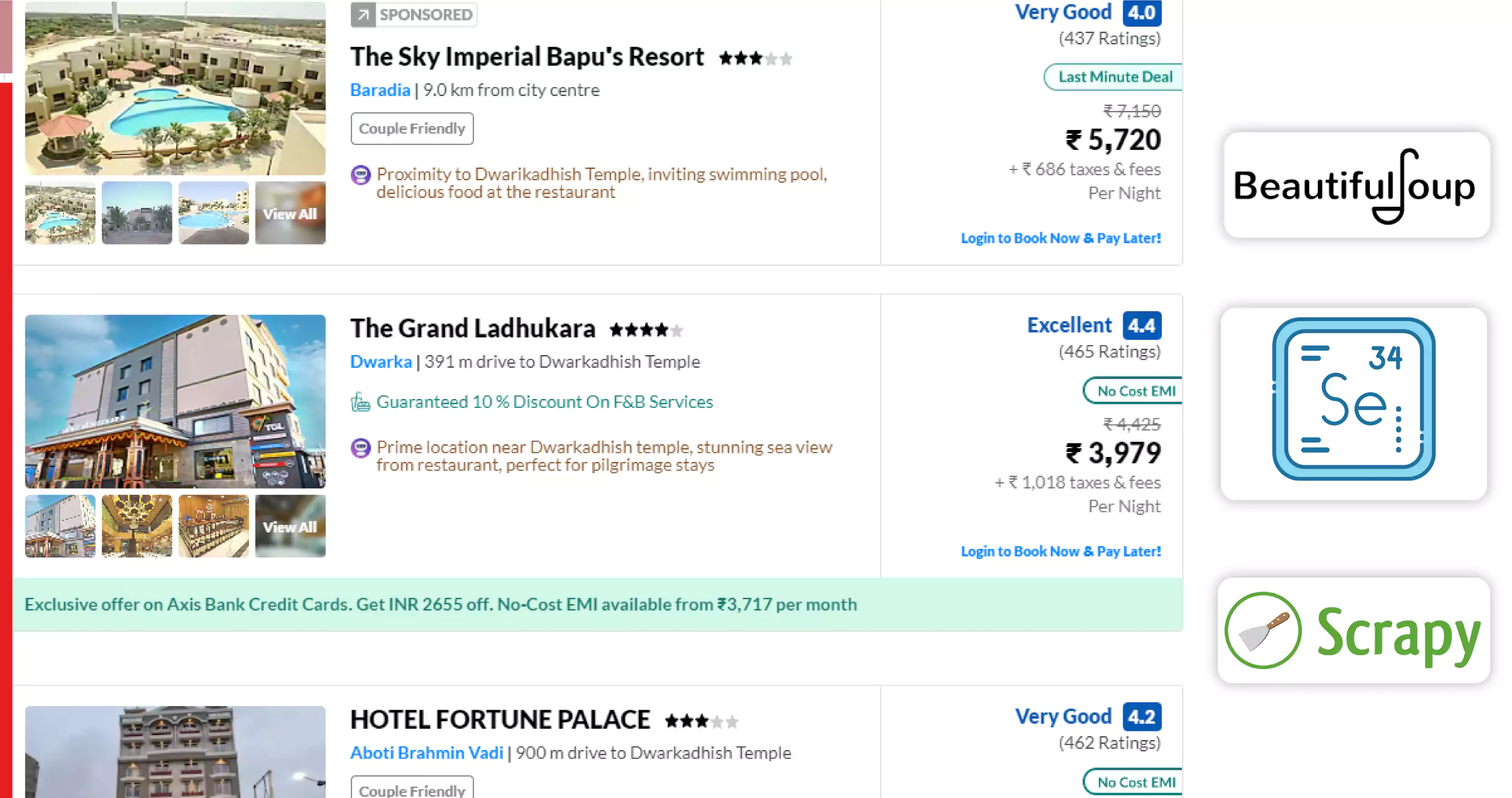
To effectively do MakeMyTrip Hotel Price Data Collection, you’ll need the right tools and technologies. Here’s a list of essential tools and technologies for efficient Makemytrip data scraping services:
Web Scraping Tools: Tools like BeautifulSoup, Scrapy, and Selenium are popular choices for web scraping. These tools help in extracting data from web pages by navigating through HTML and handling JavaScript.
Data Extraction Libraries: Libraries such as Pandas and NumPy can be used to manipulate and analyze the data once it’s scraped.
APIs and Automation Tools: For more advanced users, leveraging APIs and automation tools can streamline the scraping process and ensure data accuracy.
Step-by-Step Guide to Scraping Hotel Room Data from MakeMyTrip
Step 1: Set Up Your Environment
Install Required Libraries: Begin by installing necessary libraries for web scraping. For Python, you can use pip to install BeautifulSoup and Requests:
pip install beautifulsoup4 requestsChoose a Scraping Tool: Decide whether you’ll use a simple library like BeautifulSoup or a more robust tool like Scrapy or Selenium based on your needs.
Step 2: Inspect the Website
Access the Website: Open MakeMyTrip’s website and navigate to the hotel booking section.
Inspect the Page Elements: Use the browser’s developer tools to inspect the HTML structure of the page. Identify the HTML elements that contain the data you need, such as hotel names, prices, and availability.
Step 3: Write the Scraping Script
Fetch the Web Page: Use the Requests library to fetch the web page content.
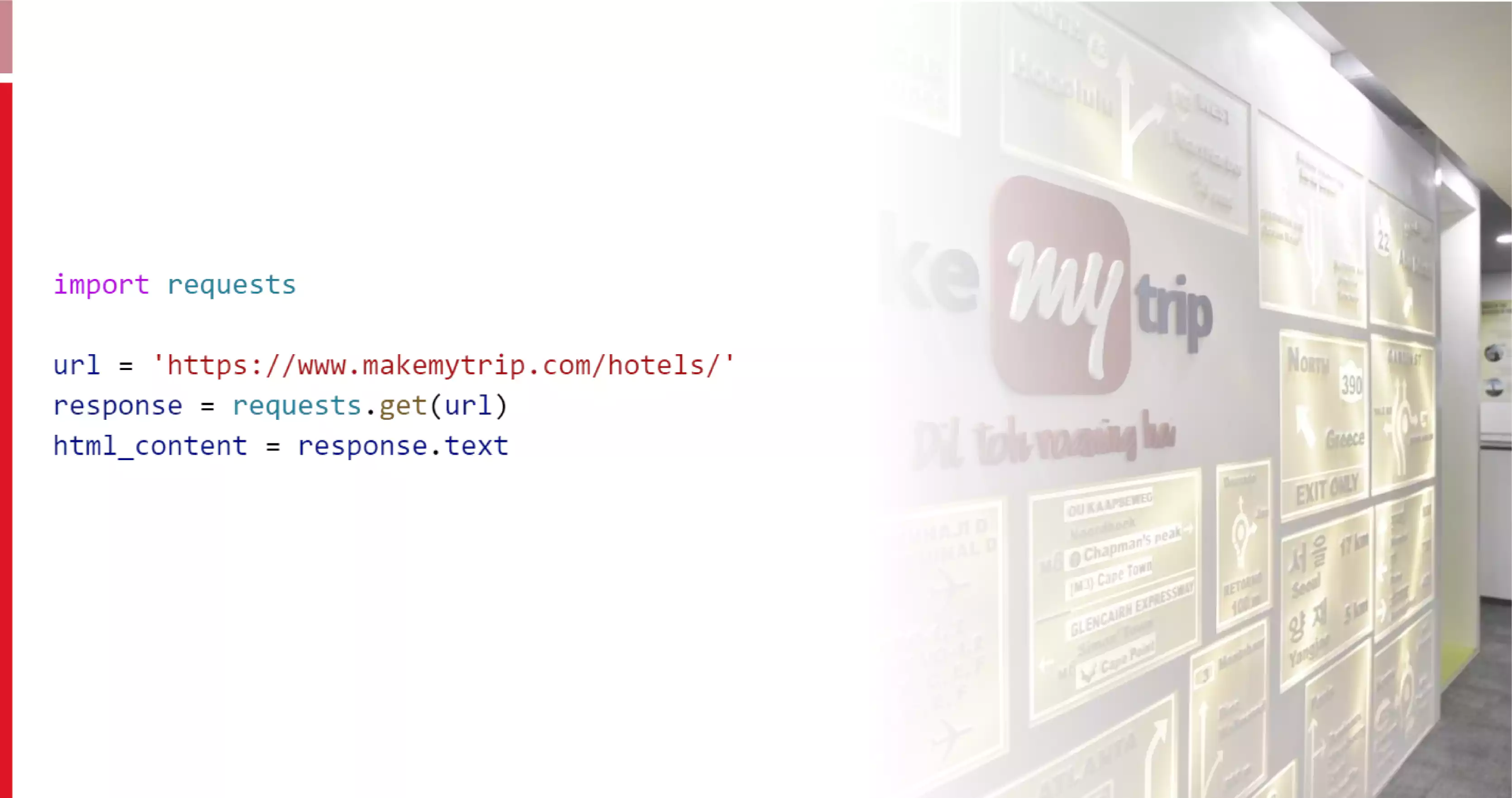
Parse the HTML Content: Use BeautifulSoup to parse the HTML and extract the necessary data.
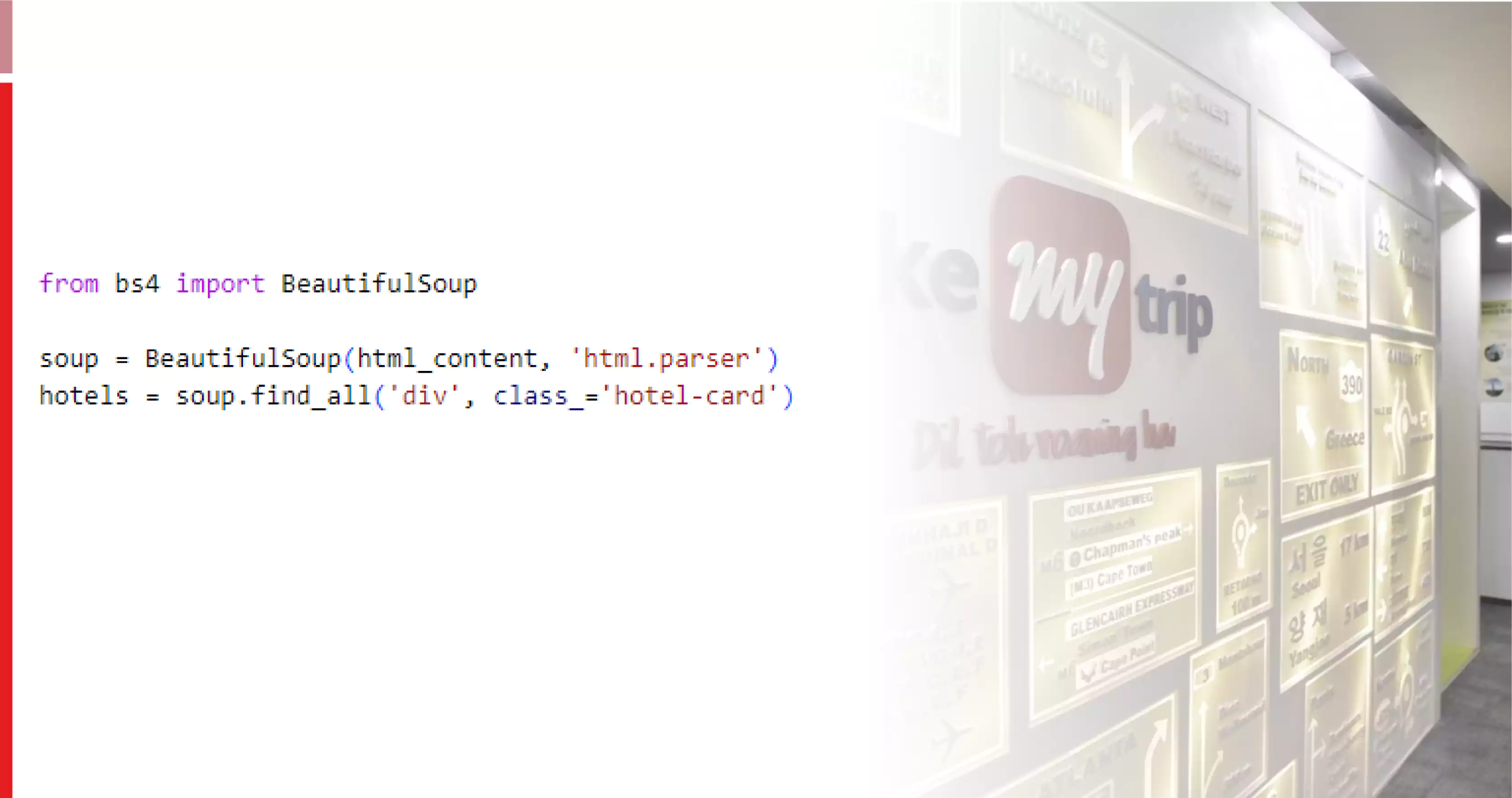
Extract Hotel Data: Loop through the parsed HTML to extract hotel names, prices, and availability. for hotel in hotels: name = hotel.find('h3', class_='hotel-name').text price = hotel.find('span', class_='price').text availability = hotel.find('span', class_='availability').text print(f'Hotel: {name}, Price: {price}, Availability: {availability}')
Step 4: Handle Pagination
Identify Pagination Links: Many websites have pagination for multiple pages of results. Identify the pagination links to scrape data from all pages.
Scrape Multiple Pages: Adjust your script to handle multiple pages by iterating through the pagination links and collecting data.
Step 5: Store and Analyze the Data
Save the Data: Store the scraped data in a CSV file or database for further analysis.
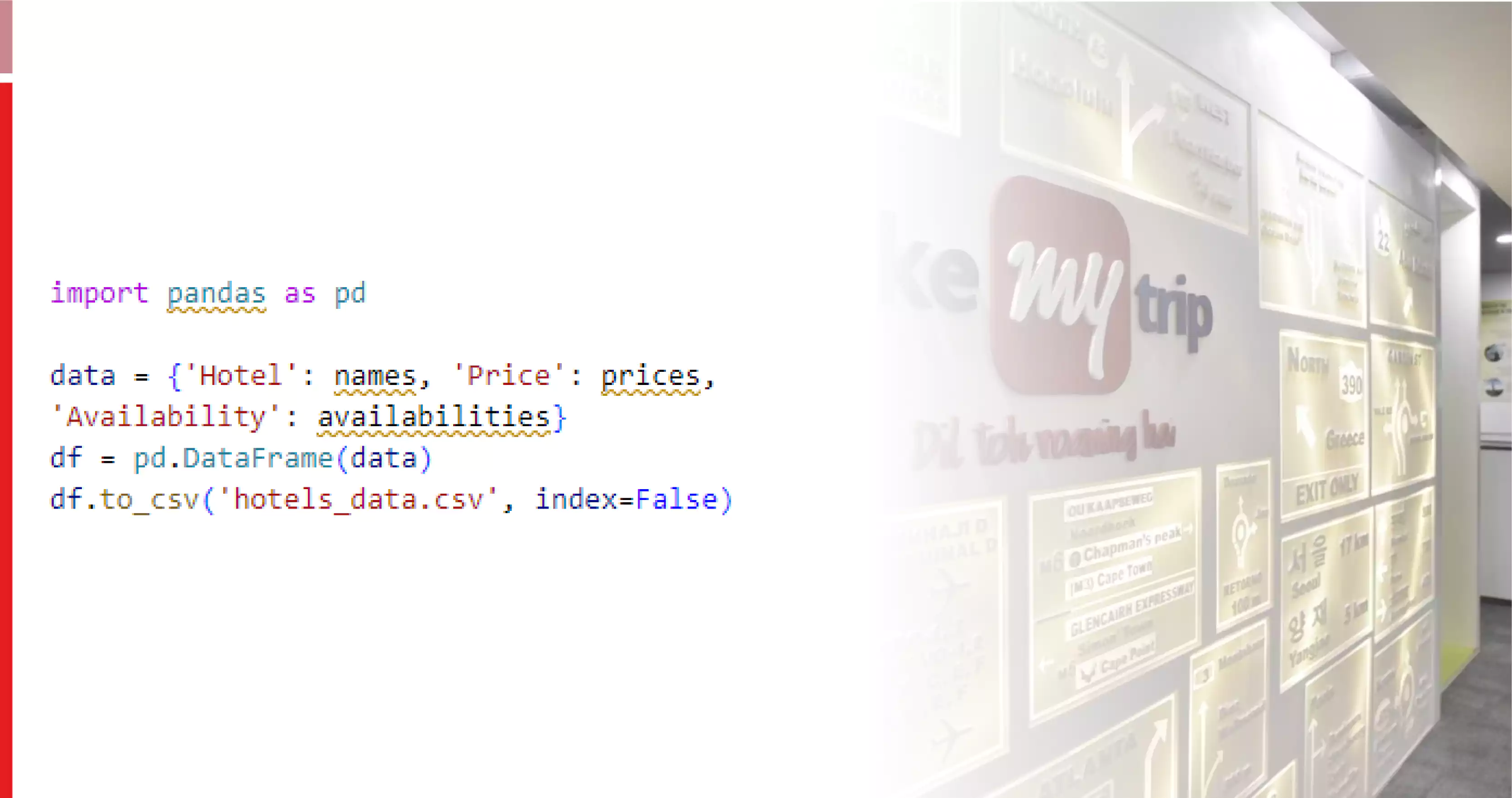
Analyze the Data: Use data analysis tools to gain insights from the collected data. Analyze pricing trends, availability patterns, and other key metrics.
Best Practices for Web Scraping
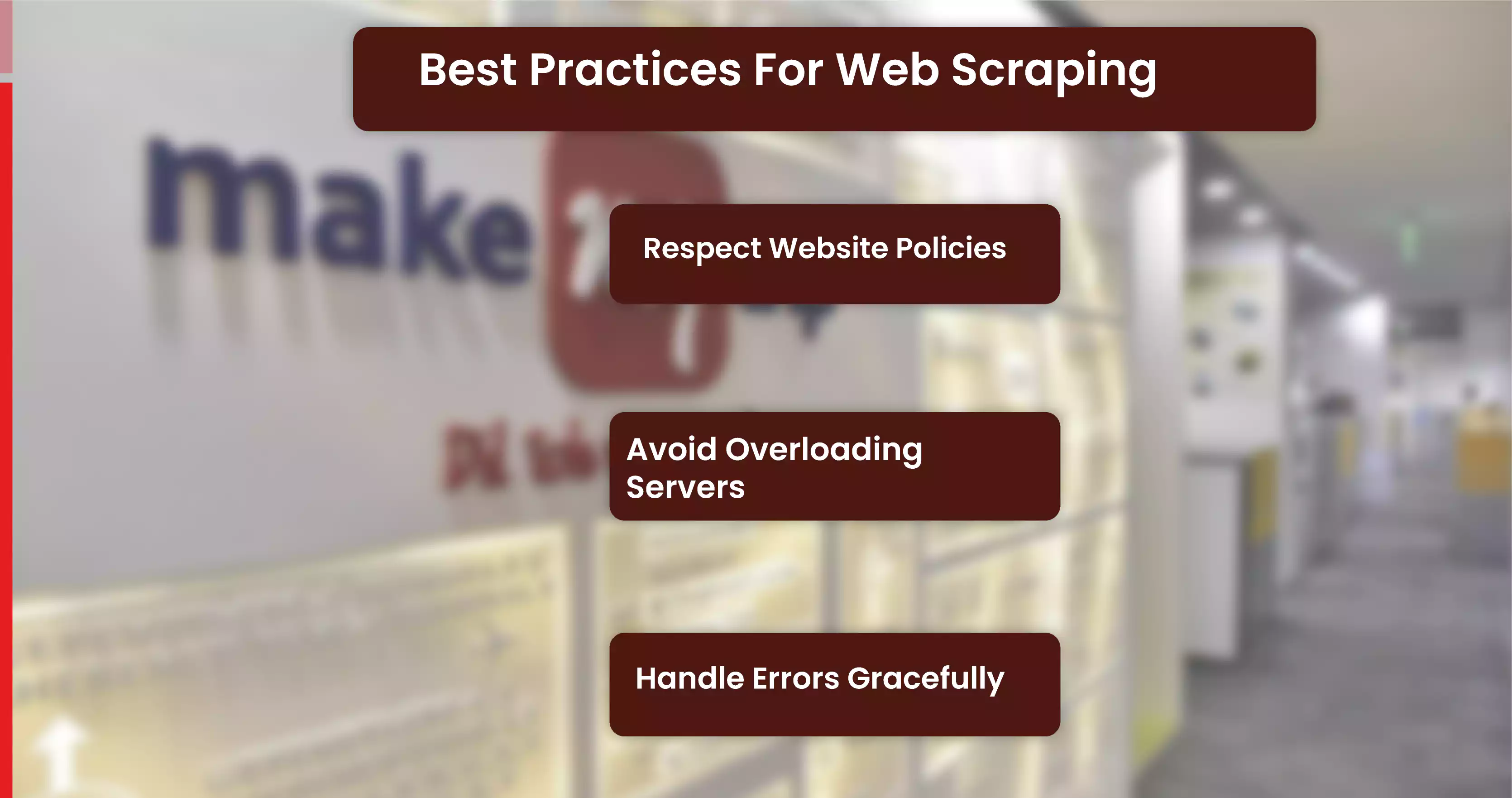
Respect Website Policies: Always check the website’s terms of service and robots.txt file to ensure you’re complying with their scraping policies.
Avoid Overloading Servers: Implement polite scraping practices by adding delays between requests and avoiding excessive requests.
Handle Errors Gracefully: Incorporate error handling in your script to manage issues like network errors or changes in the website’s structure.
Applications of Scraped Hotel Data
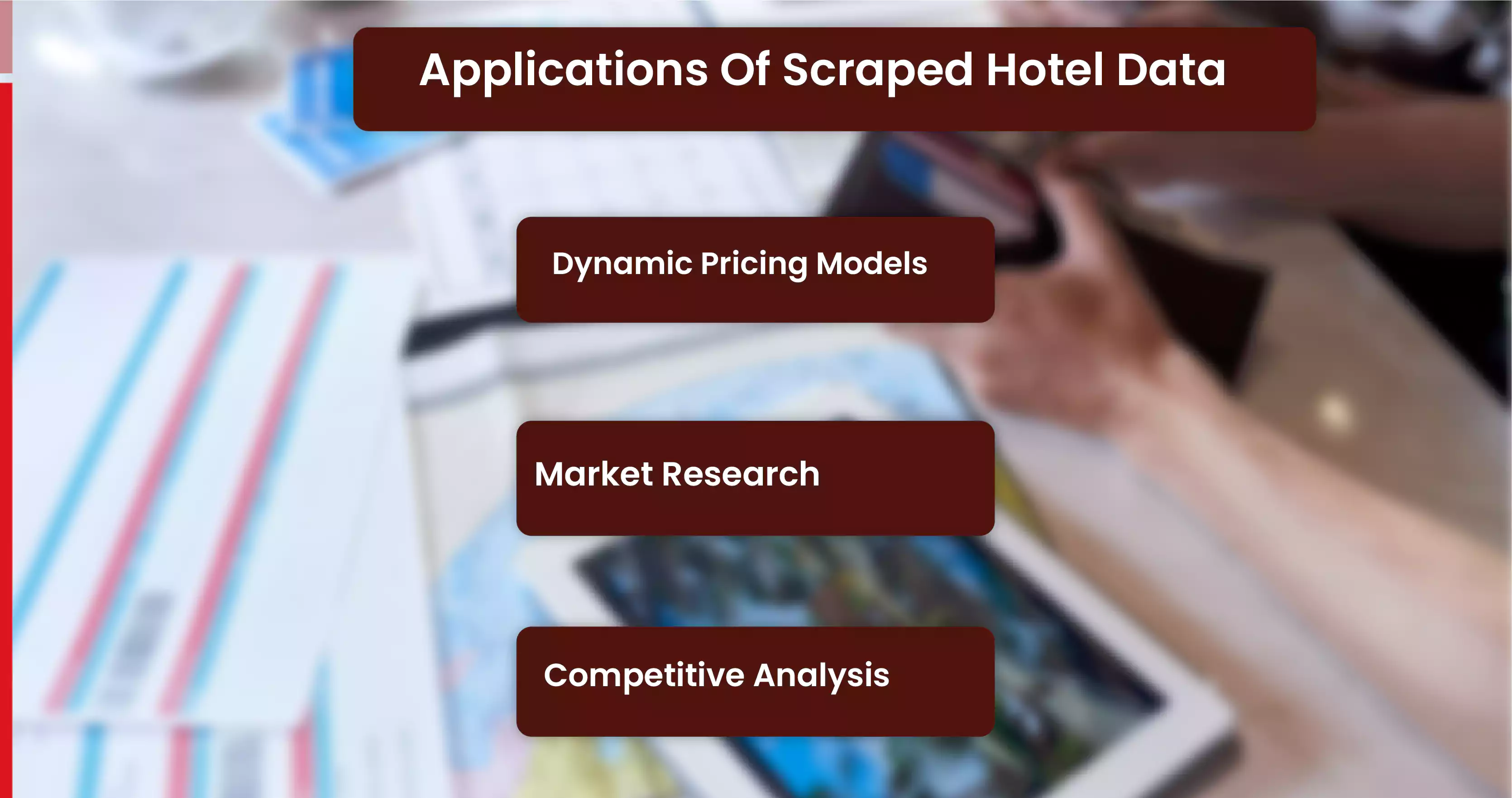
Dynamic Pricing Models: Use the data to develop dynamic pricing models that adjust rates based on demand and competition.
Market Research: Analyze pricing and availability data to understand market trends and customer preferences.
Competitive Analysis: Monitor competitors’ pricing strategies and adjust your own to stay competitive in the market.
Conclusion
Scraping hotel room availability and price data from MakeMyTrip can provide valuable insights for businesses in the travel and hospitality industry. By using MakeMyTrip data scraping services, you can gather accurate and up-to-date information to enhance your pricing strategies, monitor market trends, and optimize your operations. Hotel data scraping solutions allow you to extract crucial information efficiently, providing a competitive edge in the dynamic travel market.
At Travel Scrape, we specialize in providing comprehensive hotel price datasets and web scraping travel data solutions tailored to your needs. If you’re looking to leverage hotel room availability and pricing data extraction to boost your business, contact us today. Let us help you with travel aggregators and scrape mobile travel app data to stay ahead in the ever-evolving travel landscape!